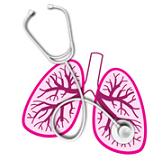Advertisment
ERS Report 2013 – Every hour one person dies of Asthma in Western Europe

Asthma is still a serious public health issue affecting approximately 30 million people in Western Europe at a cost of around 17.7 billion Euro. There are efficacious treatments available that have been proven in clinical trials however real world treatment of asthma is still sub-optimal.
This affects people living with asthma in different ways. It can effect social life, participating in exercise even ones sex life. Many people ignore the symptoms and accept them as a normal part of having asthma, often because they do not realise that the asthma can be managed better.
The REALISE survey (Recognise Asthma and Link to Symptoms and Experience) was conducted among people with asthma aged 28-50 across 11 European countries. The aim was to evaluate asthma control across Europe and assess the role of attitudes and behaviours in disease management.
Prof David Price from the Centre for academic and Primary Care University of Aberdeen presented some of the results from the study:
- Survey results showed that 45% required steroids to control their asthma in the previous 12 months.
- Only 20% of patients were controlled 80 % partially or poorly controlled.
- Of the 45% that were uncontrolled, 40% had been treated in hospital emergency departments in the past year due to their asthma.
- Overnight hospitalisation was required in 12% of patients and 36% had a t least one day off work adding to the financial burden of the disease.
- The impact on patient’s lives is huge with 33% stating that asthma stopped them having a full life, 20% say asthma affects their sex life, 43% say they ignore their asthma so they can feel normal and fit in with their friends and pers.
- While 52% worry about the impact of their condition on future health.
Next professor Thys van der Molen from Groningen in the Netherlands presented some more information.
The compliance of patients taking medication varies considerable and can have an impact on the asthma control of patients.
The study was able to identify 4 patient types from a cluster analysis:
- Concordant -These patients follow the doctor’s advice yet still only 52% take their preventer every day as prescribed.
- Over Confident – 89% do not want to be labelled as sick. The mindset is that they are confident in managing their condition. Around 20% are uncontrolled and 4% are least likely to be concerned about their asthma.
- Striving type – These patients believe that asthma stops them fulfilling their life, 70% are uncontrolled, many feel embarrassed to use inhaler in public.
- Adrift- These patients seek information from alternative sources sometimes as often as once a week. 68% of them are uncontrolled.
Professor Thys van der Molen suggested that by knowing a little more about patient types and attitudes then it will be possible to better treat these patients. Healthcare professional’s need to work together with their patients to develop joint asthma management plans and goals which take account of patient mind set.
Flare ups of asthma are prevalent in uncontrolled patients either because their compliance and adherence is a problem or because the asthma is worse despite treatment.
These insights should help members of the primary healthcare team provide good advice and help patients with a structured programme to help treat their asthma.
The presentations can be seen athttp://www.realiseasthma.com/live
Contact: Lauren Anderson
lauren.anderson@europeanlung.org
0043-676-331-5356
European Lung Foundation





